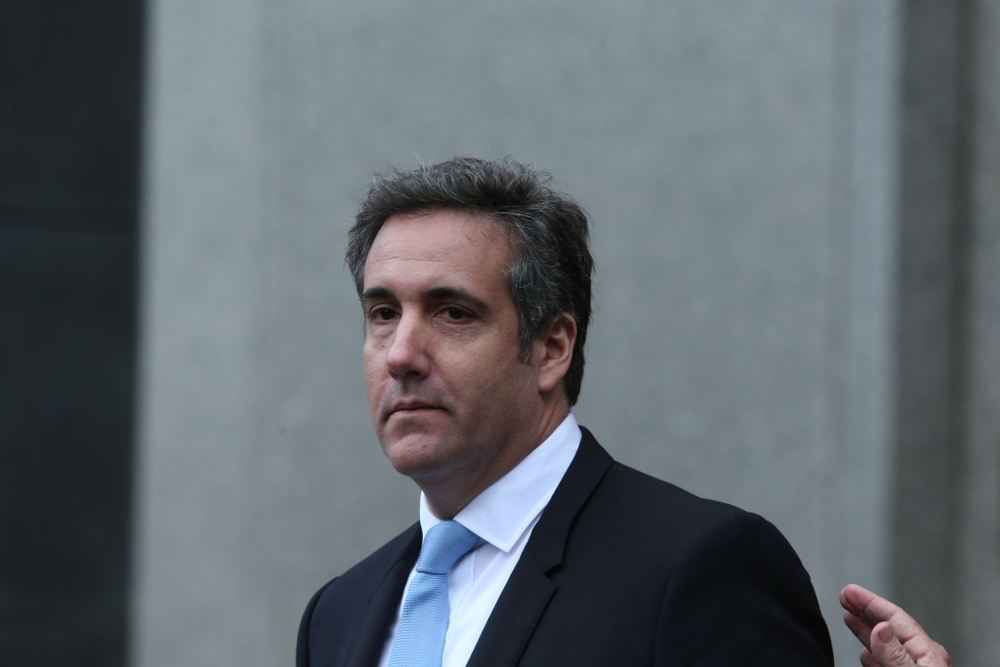
NEW YORK — They’re the ultimate insiders, but the lawyers speaking publicly on behalf of President Donald Trump and his longtime “fixer”-turned-foe Michael Cohen have been fumbling the facts of late.
Cohen’s lawyer, Lanny Davis, spent recent days walking back his bombshell assertions that his client could tell the special counsel that Trump had prior knowledge of a meeting with a Russian lawyer to get damaging information on Hillary Clinton.
“I should have been much clearer that I could not confirm the story,” Davis said Monday, attempting to clean up his comments in interviews last week after Cohen pleaded guilty to campaign finance violations, tax evasion and bank fraud.
Trump’s lawyer, Rudy Giuliani, caused a stir last week when he told The Washington Post that Trump had sought his advice on the possibility of granting a pardon to former campaign chairman Paul Manafort, who was convicted last week on tax and bank fraud charges.
Giuliani told the Post that he counselled against the move at least until the end of special counsel Robert Mueller’s investigation, but Fox News later reported that Giuliani said that Trump had not broached the idea of a pardon for Manafort specifically.
The apparent contradiction added to confusion about the president’s plans and underscored how the two loudest voices speaking on the Russia probe were, in many ways, unreliable narrators.
Federal ethics rules frown on lawyers making comments intended to prejudice a jury or engaging in fraud or dishonesty, but legal ethics expert Steven Lubet said there’s no boundary crossed by an inaccurate public statement.
“This is, I think, what I think some of the ethics opinions would call mere puffery, and typically that is not subject to discipline,” said Lubet, of Northwestern University law school.
“In the age of 24/7 news, it’s a hopeless quest to expect people to know what they’re talking about,” Lubet added, jokingly.
Davis told The Washington Post over the weekend that he “could not independently confirm” the claims he made on television last week that Cohen witnessed Trump’s eldest son, Donald Trump Jr., telling his father about the Trump Tower meeting beforehand.
“I take responsibility for not communicating more clearly my uncertainty,” Davis told The Associated Press on Monday. “I regret the error.”
Davis also is hedging suggestions he made on television last week that Cohen could tell special counsel Robert Mueller about whether Trump was aware of and encouraged Russian hacking during the 2016 campaign before it became publicly known.
After suggesting to CNN last Wednesday that “Cohen was an observer and was a witness to Mr. Trump’s awareness of those emails before they were dropped,” Cohen told the Post, “there’s a possibility that is the case. But I am not sure.”
The prospect of Cohen telling Mueller that Trump knew in advance about the June 2016 meeting has hung over the Russia probe since CNN, citing anonymous sources, reported last month that Cohen was willing to share the information. Davis told the AP at the time that the basic substance of the CNN report was correct and told CNN last Wednesday that Cohen “was present during a discussion with junior and dad” pertaining to the Trump Tower meeting.
Davis, citing a lack of independent verification, apologized Monday to the AP, saying “I express my regrets that I could not confirm what I told you.”
Giuliani also has misspoken about the Trump Tower meeting.
He told NBC News on Aug. 19 that he didn’t know if participants in the meeting, including Trump Jr. and Manafort, knew that lawyer Natalia Veselnitskaya “was Russian at the time.”
“All they had was her name,” Giuliani said.
In fact, emails released by Trump Jr. himself make clear that he was explicitly told an attendee at the meeting would be a “Russian government attorney” who wanted to provide damaging information about Clinton. Additionally, Trump Jr. has said he didn’t have the lawyer’s name prior to the meeting.
Trump, who has denied knowing about the meeting, seized on Davis’ about-face.
“Michaels Cohen’s attorney clarified the record, saying his client does not know if President Trump knew about the Trump Tower meeting (out of which came nothing!),” Trump tweeted on Saturday. “The answer is that I did NOT know about the meeting. Just another phoney story by the Fake News Media!”
CNN said it stands by the story, which included reporting from Watergate reporter Carl Bernstein. Trump Jr. tweeted that CNN was defending “literal fake news” and derided Bernstein as a “leftist hack.”
Another Trump lawyer, Jay Sekulow, was forced earlier this month to correct an assertion from last year that Trump was not involved in dictating a news media statement aboard Air Force One about the purpose of the Trump Tower meeting. Sekulow said in an ABC News interview this month that he “had bad information” and that “over time facts develop.”
The conflicting statements are important not only because they can raise credibility questions but also because, in the absence of any comments, clarification or corrections from the special counsel’s office, the lawyers’ words are sometimes the most direct vehicle for providing information to the public about the status of the investigation.
It’s not clear, though, that they have any bearing on the investigation itself.
Davis primarily functions as a spokesman for Cohen, with the bulk of the actual legal work being done by New York lawyer, Guy Petrillo, who used to work for the Manhattan office now leading the prosecution.
And Giuliani, though the public face of Trump’s legal team, is hardly the primary negotiator with Mueller’s office. In addition to Sekulow, Trump has been relying on a husband-wife duo from Florida, Jane and Martin Raskin, and a veteran Washington hand, Emmet Flood, to serve as the White House liaison in the Russia investigation.